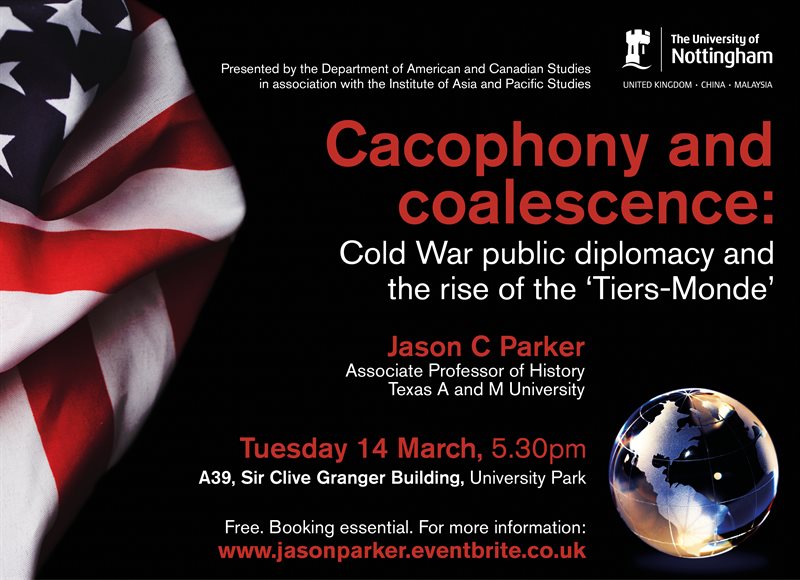
Presented by the Department of American and Canadian Studies in association with the Institute of Asian and Pacific Studies.
During the first half of the Cold War, the superpowers endeavored mightily to “win hearts and minds” abroad through what came to be called public diplomacy. Many of the target audiences were on the Cold War front-lines in Europe. However, other, larger ones resided in areas outside Europe then in the throes of decolonization. In these areas, superpower public diplomacy encountered a set of challenges around the issues of race, empire, poverty, and decolonization. At the same time, newly independent voices in India, Egypt, Ghana, and elsewhere launched public-diplomacy campaigns of their own, making for a crowded field by the 1960s.
Reappropriating the geopolitical and intellectual space left between the poles of the superpower conflict, this global conversation formulated around a nucleus of nonalignment, post-imperial economic development, and anti-colonial racial solidarity. The global-South response to the injection of the Cold War into their environs thereby helped to coalesce the “Third World” as a transnational imagined community on the postwar global landscape.
Speaker biography
Jason C Parker is Associate Professor of History at Texas A&M University, where he has taught since 2006. He completed his PhD in 2002 at the University of Florida under Bob McMahon and taught for four years at West Virginia University. He is the author of Brother's Keeper: The United States, Race, and Empire in the British Caribbean, 1937-1962 (Oxford University Press, 2008) which won the SHAFR Bernath Book Prize, and of articles in the Journal of American History, Diplomatic History, the Journal of African American History, International History Review, and elsewhere. He has received research fellowships from the Smith Richardson Foundation, the Truman Library Institute, the Fulbright Foundation, and the Mershon Center in support of his new book Hearts, Minds, Voices: U.S. Cold War Public Diplomacy and the Formation of the Third World (OUP, 2016) and of his next project, a comparative study of postwar federations in the decolonizing world.
This event is free but please register online.